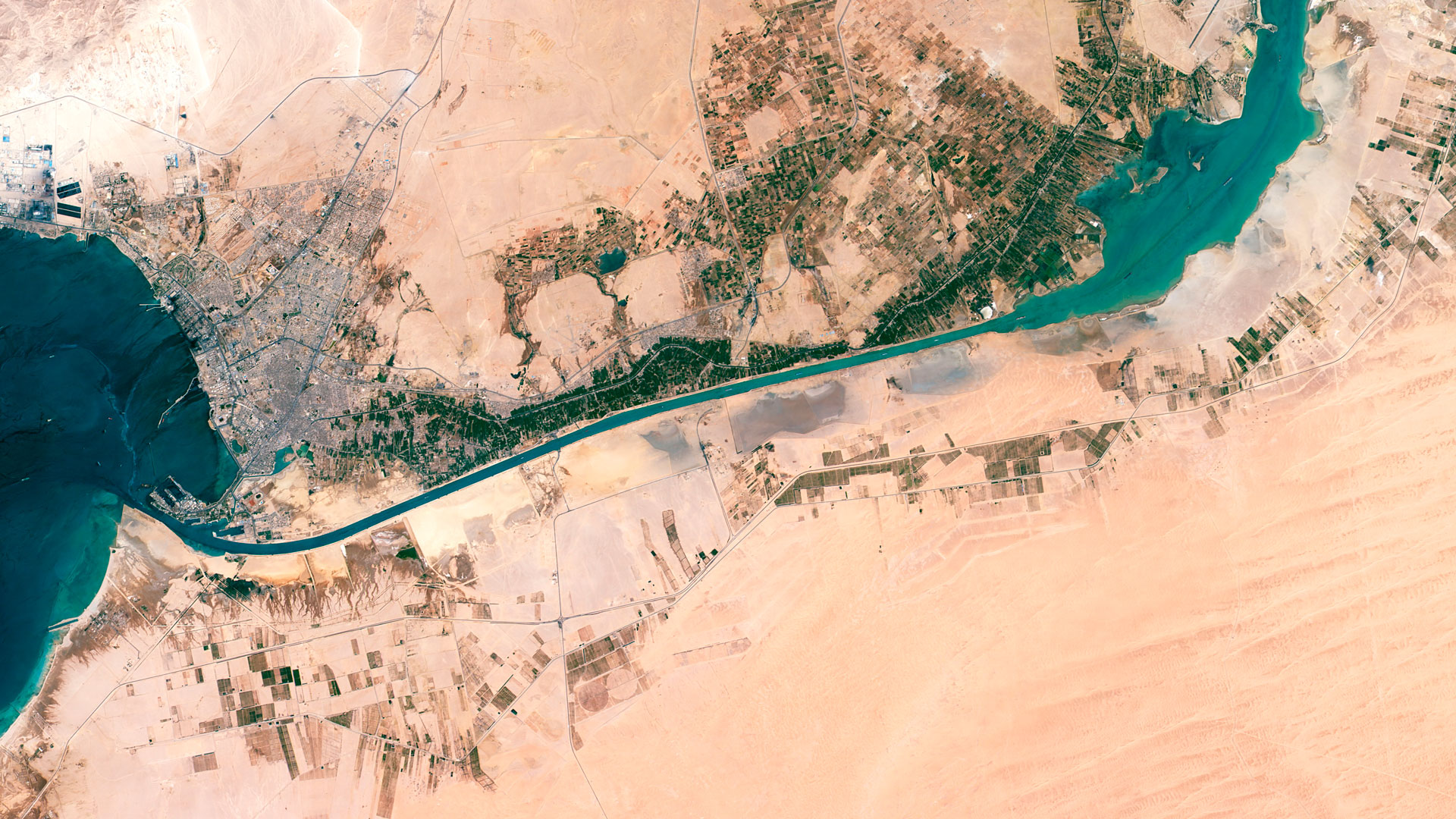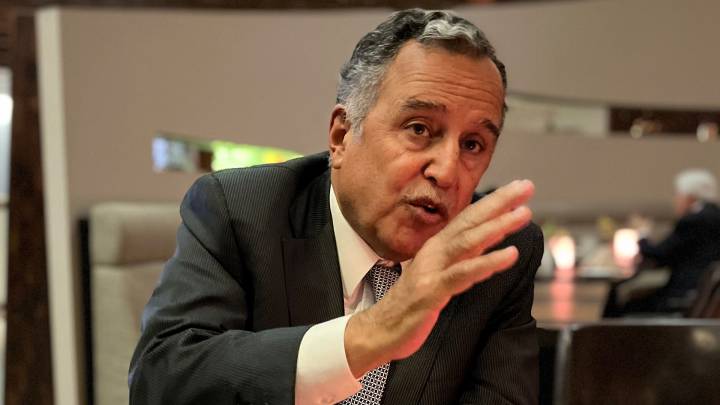As Egypt battles inflation, China sees an opening to promote a major fiscal shift. Potential benefits for Beijing’s agenda, however, go far beyond trade and lending.
During a recent search for my first Cairo apartment, I was offered a sizeable slash on my rent were I to pay in US Dollars, cash. Instead of the official market rate – which has been hovering around 32 Egyptian Pounds to the Dollar – the owner proposed 39. The offer was settled then and there, but a number of the bills were rejected. Supposedly they were ‘too old’ – i.e. not of the series that entered circulation in 2013 – which made them undesirable by official banks. After a few phone calls, a broker was found who would accept the bills.
It is important not to read too deeply into this story, but the anecdote does highlight the foreign currency crisis that has enveloped Egypt since Russia’s 2022 invasion of Ukraine. The conflict unsettled investors who feared knock-on effects in the world’s largest wheat importer and led to 20 billion USD exiting Egyptian debt. Gulf countries – which have increasingly adopted the role as Egypt’s lender of last resort – deposited 13 billion USD to help calm the situation.
Egypt agreed to an IMF deal in December 2022 which grants the country 3 billion USD over a 46-month period. The agreement, referred to as the ‘Extended Arrangement for Egypt’, necessitates a durable shift to flexible exchange rates. However, the deteriorating value of the Egyptian Pound has not spurred inflows in foreign currency, exacerbating inflationary pressures on a country which is heavily reliant on imports of basic goods. The IMF forecasted a financing gap of about 17 billion USD for Egypt over the next four years. Which, when the IMF funding is removed, leaves a gap of 14 billion USD.
People on the streets are convinced that further devaluations are to follow. A view shared by analysts and economists, who believe further devaluations are required for a supply-demand equilibrium in the foreign exchange market to be reached.
But it is not only private investors who are reluctant to return to Egypt. The second largest debtor to the IMF – on its fourth loan package since 2016 – has serially failed to enact structural reforms that would help to convince foreign and institutional lenders. Promises to liberalise the economy were made numerous times before and were not followed through. Such as introducing a flexible exchange rate. In addition, the Army’s prominent economic role has crowded out private enterprise as well as FDI.
The renminbi’s share of the overall market’s value more than doubled year-on-year in 2023
Faced with these conditions it is not surprising that Egypt has begun to search for alternative sources of funding and is considering shopping in currencies other than the US Dollar. In August of 2022, Egyptian Minister of Finance, Mohamed Maait, announced that preparations were being made to issue 500 million USD worth of Yuan-denominated bonds. Whilst just as recently as April this year, Egyptian media reported that the Ministry of Supply and Internal Trade was considering importing wheat in exchange for the Chinese renminbi.
There has been much debate about the challenge posed by the renminbi to the US dollar, the world’s undisputed reserve currency. Much of it within the context of deteriorating relations between the two superpowers, which have turned increasingly frosty. As such economists, analysts, and industry experts have paid close attention to the renminbi’s growing internationalisation within trade finance. A move that many in the West are convinced will be coupled with China’s geopolitical ambitions. Any attempt to promote itself within the current international system will no doubt require a substantial shift in the workings of the global economy.
The first half of 2023 has been an active one for China. During Xi Jinping’s state visit to Moscow in March, Vladimir Putin announced it would adopt the renminbi as a main currency for its international reserves. This carried a particular punch given the recent turmoil in America’s banking sector and its ongoing battle with inflation. The latter has increased the cost of dollar funding, making the renminbi more attractive. In fact, it’s share of the overall market’s value more than doubled year-on-year in 2023, according to Swift, the international transactions and payments platform.
Whilst Egypt lacks the geopolitical clout of a country such as Russia, even the relatively small amount of 500 million USD would be particularly poignant given the country’s traditionally close relationship with America. China has been toning down vocal diplomats – dubbed “wolf warriors” – shifting to more tactful tones aimed at expanding its diplomatic role. Preferably within in America’s traditional sphere of influence, where possible.
China views any retreat by Western states – above all the US – as an opportunity to further its political goals
In March, it brokered a deal between Saudi Arabia and Iran, leading to a restoration of diplomatic relations between the two states after more than 7 years. The US and Saudi Arabia have been on less amicable terms in the last few years. Not to mention Iran and the West, which attempted to further isolate the regime after a tough crackdown on anti-government demonstrations.
China views any retreat by Western states – above all the US – as an opportunity to further its political goals. Country’s such as Saudi Arabia, Iran, or Egypt are made even more attractive due to their similarities in governance. Xi Jinping has continuously emphasised China’s ‘alternative model of development’, aimed at those states who do not fancy the heavy dose of reforms required by Western institutions. A potentially attractive option for Egypt’s leadership, especially if current measures fail to improve the overall economic climate.
Strategically, pulling Egypt closer into its sphere of influence – even if only economically – would represent a psychological victory given the country’s role within the region. Politically, but most significantly, geographically. As a major artery of the global economy, maintaining access to the Suez Canal is as much an economic imperative as it is a military and strategic one. Not to mention China also maintains its only foreign military base in Djibouti, which separates the Red Sea from the Gulf of Aden.
It is important to take this with a pinch of salt, however. The renminbi loans discussed are miniscule in size and for its part, Egypt seems more concerned with plugging the gaps in its finances than it is with geopolitical calculations. Not to say it wouldn’t use an economic instrument as leverage in future negotiations with Western financial institutions. Additionally, it would not be the first time Egypt issues a bond denominated in a currency other than the US dollar, having issued a ‘Samurai’ – Japanese Yen – loan in March 2021. And China’s ambitions for its own currency? Although the number of renminbi transactions doubled, its share increased from 2% to 4.5%. The US dollar still took the lion’s share of 84.3%.




